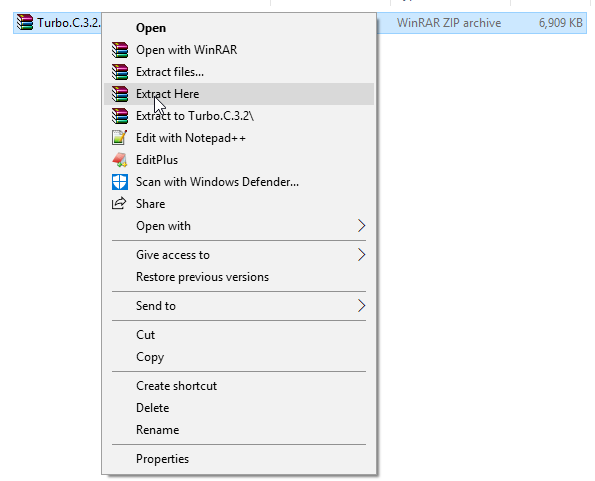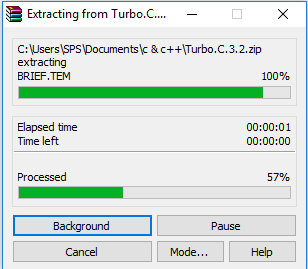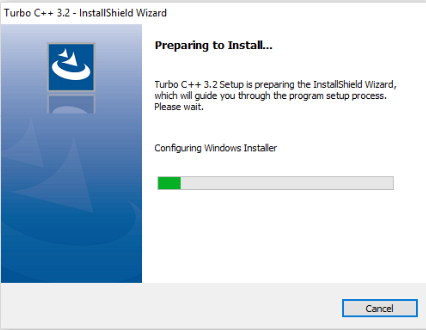C:
3.Structured Programming Language: It is a procedural oriented programming language with a collection of function modules.
4. Easy to learn: c language is easy to learn and act as the basis for understanding many other complex programming languages.
5.Built-in functions:It is a rich set of built-in functions.
6. User-defined functions: Apart from the standard functions in c library, we can create our own user defined functions.
Cons:
1. Data security: There is a lot of overflow in C language and this cam lead to overwriting information in the memory.
2.No run-time checking: C language is mostly compile time checking. so it is does not allow runtime checking so it is difficult to fix the bugs.
3. No strict type checking: When passing data to the parameters, there is no strict type checking.
4. No code reuse: It does not support oops concept. So we can not reuse the code and it does not support constructors and destructors.
5. Namespace Concept: It does not support namespace concept so it is impossible to declare two variables with same name.
6.No OOP concepts: Object-oriented programming language concepts like ploymorphism, data abstraction, inheritance are not supported in c language.
Editors of C:
C is referred as a compiled language, so we have to use a compiler to convert the code into an executable file before we run the program.
The code is written in one or more files which we can open, read and edit in any text editor like notepad in windows.








- C is a procedural oriented programming language.
- It was mainly developed as a system programming language to write operating systems.
- It access low memory and it has simple set of keywords.
- It has rich set of built-in functions
- it is building block for many other programming languages.
- The modular structure makes code dubbing, maintenance and testing easier.
Structure of C program:
<Header files> ---- #include<stdio.h>
<main method()> -----int main() {
< variable declaration> -----int a=10;
Body -----printf("%d",a);
return statement -----return 0;
Pros and Cons of C:
Pros
1.Portable Language: The program which is written in one computer can run on any computer without any change.
2.Building block for other Languages: It acts as a building block for many languages.3.Structured Programming Language: It is a procedural oriented programming language with a collection of function modules.
4. Easy to learn: c language is easy to learn and act as the basis for understanding many other complex programming languages.
5.Built-in functions:It is a rich set of built-in functions.
6. User-defined functions: Apart from the standard functions in c library, we can create our own user defined functions.
Cons:
1. Data security: There is a lot of overflow in C language and this cam lead to overwriting information in the memory.
2.No run-time checking: C language is mostly compile time checking. so it is does not allow runtime checking so it is difficult to fix the bugs.
3. No strict type checking: When passing data to the parameters, there is no strict type checking.
4. No code reuse: It does not support oops concept. So we can not reuse the code and it does not support constructors and destructors.
5. Namespace Concept: It does not support namespace concept so it is impossible to declare two variables with same name.
6.No OOP concepts: Object-oriented programming language concepts like ploymorphism, data abstraction, inheritance are not supported in c language.
Editors of C:
C is referred as a compiled language, so we have to use a compiler to convert the code into an executable file before we run the program.
The code is written in one or more files which we can open, read and edit in any text editor like notepad in windows.
1.Notepad
2.Atom
3.Visual studio code
4.Brackets
Downloading C Editor:
Step-1: Download the zip file of c editor
Step-2: After downloading the zip file, right click on the zip file there you can see some options. Click on extract here option
Then the files will be extracted, there you can see setup files
Step-3: Double click on Setup.exe file
click next button to download the file.
Simple Hello World Program:
Output:
Compiler:
A compiler is nothing but a special program that process statements written in programming language into machine understandable language.
Interpreter:
An interpreter is a program which imitates the execution of programs written in a source language.
Header files:
The first component is the inclusion of the header files in the c program.
A header file is the file with .h extension which contains declarations and macro definitions.
#include<stdio.h>
#: It is a preprocessor directive which means something has to be done by the compiler before starting the compilation.
include: # instructs the compiler to include the files before processing.
<>: When compiler encounters a file name enclosed within "<filename>", then it looks for the filename at predefined standard paths
#: It is a preprocessor directive which means something has to be done by the compiler before starting the compilation.
include: # instructs the compiler to include the files before processing.
<>: When compiler encounters a file name enclosed within "<filename>", then it looks for the filename at predefined standard paths
Stdio.h: Defines core input and output functions.
It includes files related to the input/ output operations like printf, scanf, getc,fetxhar etc.
.h extension refers to the header file.
It includes files related to the input/ output operations like printf, scanf, getc,fetxhar etc.
.h extension refers to the header file.